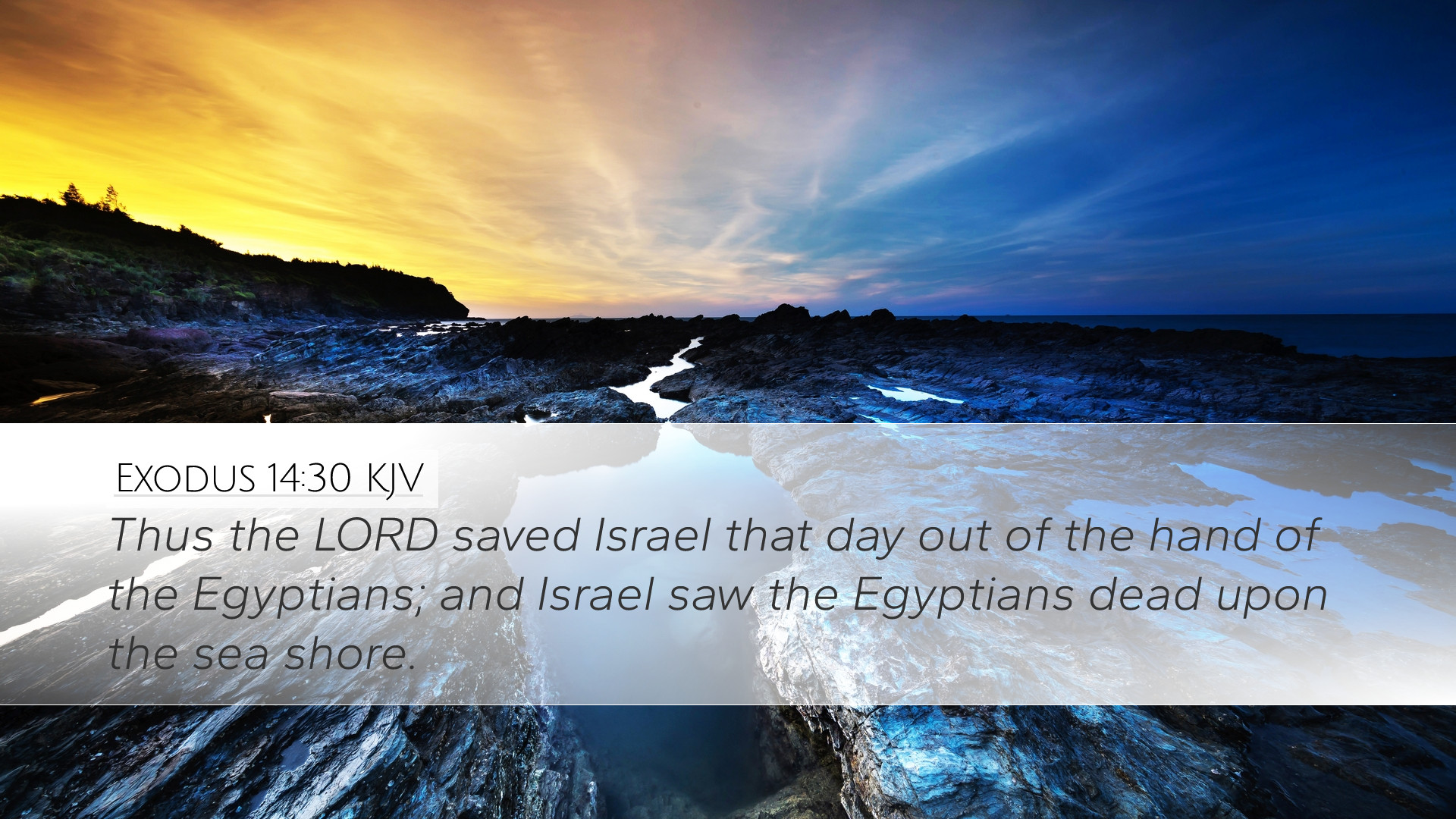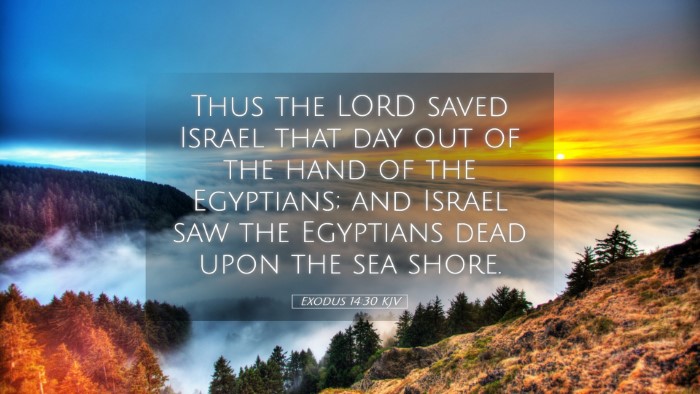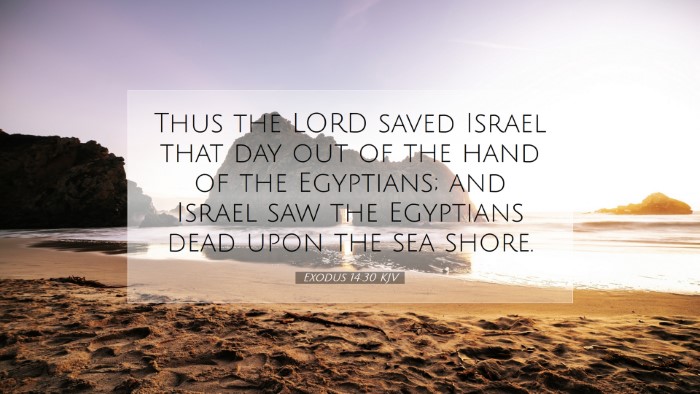Exodus 14:30 - A Commentary
Verse: "Thus the Lord saved Israel that day out of the hand of the Egyptians; and Israel saw the Egyptians dead upon the sea shore." (Exodus 14:30)
Introduction
This verse encapsulates a monumental moment in the history of Israel, marking the climax of their deliverance from Egyptian bondage. It informs us about God's mighty hand in the liberation of His people and serves as a significant testament of faith and divine intervention. In this commentary, we will draw insights from notable public domain commentaries to explore the theological implications and practical applications of this verse.
The Context of Deliverance
The events leading to this verse are crucial for understanding its depth. The Israelites had endured severe oppression in Egypt, characterized by harsh slavery and inhumane treatment. God’s promise to liberate them began to manifest through the leadership of Moses, who was chosen to confront Pharaoh and demand their freedom.
The Significance of God’s Salvation
Matthew Henry states that this verse is pivotal as it directly correlates with God’s faithfulness to His covenant. The phrase “saved Israel” indicates God’s active role as a savior, fulfilling His promise to deliver His people. Henry emphasizes that this salvation is not merely physical but also spiritual, as it points to God’s overarching plan of redemption.
Albert Barnes further notes that the 'day' mentioned signifies a particular moment in history where divine intervention was unmistakably displayed. The act of “seeing the Egyptians dead” was not only a confrontation with death but also an affirmation of the power of God over their oppressors. Barnes highlights the symbolism of the 'Red Sea' representing the barrier that God removed, allowing His people to walk in freedom.
The Theological Implications
This verse offers rich theological insights, primarily concerning divine sovereignty and human response. Adam Clarke reflects on God’s sovereignty through the miraculous crossing of the Red Sea. It serves as a profound image of salvation—God fights for His people, and they are merely spectators of His glory. Clarke allows readers to see that the assurance of deliverance does not lie in Israel's military strength but in their faithfulness and trust in God's plans.
- Divine Sovereignty: God's absolute control over nature and nations is highlighted as He orchestrates the events leading to Israel's liberation.
- Faith and Obedience: The Israelites’ faith in God’s promises was a prerequisite for their salvation, a theme that resonates with believers today.
- Victory over Evil: The destruction of the Egyptians serves as a reminder that God will defeat the forces that oppress His people.
Practical Application for Believers
This verse challenges contemporary readers to reflect on their own lives and the ways in which God delivers them from various forms of 'Egypt'—sin, oppression, and despair. As pastors and theologians study this passage, several practical applications can emerge:
- Trust in God’s Deliverance: Just as Israel witnessed God’s salvation, believers are called to trust in His promises and deliverance in times of trouble.
- God’s Power in Crisis: The miraculous nature of Israel’s journey emphasizes the need for faith during crises, reinforcing that God's power exceeds our understanding.
- Call to Witness: Israel's experience was meant to be a testimony to the surrounding nations and future generations, highlighting the importance of sharing personal testimonies of God’s acts.
Conclusion
Exodus 14:30 encapsulates a decisive moment in Israel's history marked by divine salvation and a display of God’s unmatched power. It serves as an irrefutable testament to God's faithfulness and sovereignty. Through the insights of esteemed commentators such as Matthew Henry, Albert Barnes, and Adam Clarke, readers are encouraged to reflect on the grandeur of God’s actions and the implications for their faith journeys. The lessons gleaned from this verse resonate deeply, urging believers to remember God’s deliverance as they navigate their paths in life.


